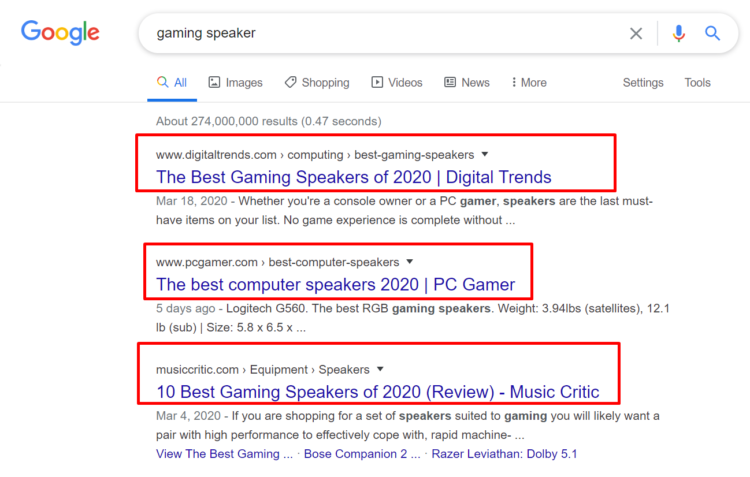 Although click-through rates are lower in featured snippets than in the organic blue links, being in Page 1 alone already gives you the advantage to attract more traffic and develop domain authority and relevance.
Google’s BERT update also led to a better understanding of intent-based search in 70 languages, so if you start implementing this on your blog or website’s content now, Google’s AI will be able to catch up on your efforts in finding and answering the right search intent in each query.
Thus, it will be a more effective approach for SEO in the long run than just stuffing your content with keywords. Remember that keyword density comes naturally when you plan your content based on highly related question-type searches.
Now, In this article, we’ll answer:
Although click-through rates are lower in featured snippets than in the organic blue links, being in Page 1 alone already gives you the advantage to attract more traffic and develop domain authority and relevance.
Google’s BERT update also led to a better understanding of intent-based search in 70 languages, so if you start implementing this on your blog or website’s content now, Google’s AI will be able to catch up on your efforts in finding and answering the right search intent in each query.
Thus, it will be a more effective approach for SEO in the long run than just stuffing your content with keywords. Remember that keyword density comes naturally when you plan your content based on highly related question-type searches.
Now, In this article, we’ll answer:
- What is search intent?
- What are the different types of search intent?
- What are the basic tools to use to determine search intent
What Is Search Intent?
As the phrase suggests, search intent is the reason and purpose behind every user’s search. It is the why behind each search query. Google processes each search query against a lot of data they have gathered from the user’s own search history and from a list of their own indexed pages (pages their bots already crawled). Now, if you look at your own search behavior, you will find that there are different types of search queries, and they are: (1) Informational, (2) Navigational, (3) Transactional, and (4) Commercial Investigation. Let’s explore them in the following section.What are the Different Types of Search Intent?
As mentioned above, there are four different types of search queries: Informational, Navigational, Transactional, and Commercial.Informational
Informational queries search intent is to learn and understand. If you’re making a how-to blog post, that’s considered an informational type of search query.Navigational
Navigational queries search intent is to go to a specific website, brand, or location. The user knows exactly who they are trying to find via Google. Most of these searches are “branded keywords”, meaning they contain the brand name of the specific website, product, or service they’re trying to find.Transactional
Transactional search queries are when the user is ready to buy or purchase a service online. The user’s search intent is to buy. Content that would best suit this type of search query is product and service landing pages. Samples of transactional search queries:- Buy Powerbank
- Grammarly premium trial
- Get…
- Discount…
- Coupon…
Commercial Investigation
Lastly, Commercial Investigation search queries are similar to informational search queries because they are looking for advice or options, However, the customer is already at a point where they are ready to buy. Content that falls under this is “top 10 best restaurants” or “best (category) of this year.” Do you want your landing page to rank higher and receive more traffic organically? Connect and build your links around websites with a high intent for commercial investigation. The categorisation of search intent is largely based on the customer’s ‘buying journey’, but it doesn’t always mean that all type of intent-based search queries are made for the purpose of buying. However, your blog could be a huge part of your marketing funnel, especially in creating brand awareness. And so, if you’re writing a blog post to bring awareness or attract people to your website, don’t just stuff keywords or key phrases in it. Your content should match the user intent and to do that; you need to conduct a search intent analysis.Search Intent Analysis: How to Determine Search Intent Using Basic Tools
There is no need to pay for a search intent tool because most of the time, the intent is already given away by the keywords themselves. There are high-intent keywords that are being used in certain types of search intent, such as mentioned in the previous section. And most of the time, identifying the intent behind the keywords/keyphrases is already done for us by Google itself. For example, if you want to make content based on a broad keyword like “gaming speaker” where it’s often hard to infer the search intent, looking at the SERPs and seeing how Google interprets the keyword is usually the best way to go. Based on the search results, it’s highly likely that the reason for the search or the specific search intent is Commercial Investigation.
In this case, you can direct your content based on these search results. You can make an improved version of these high-ranking articles, or you can add high intent keywords like “reviews” or “compare” that are similar to the intent here.
Aside from looking at Google search results, you may also check out Google’s Keyword Planner to help you double-check the search intent. You will find that keywords with higher suggested bid and competition have high commercial or transactional intent.
On the other hand, relevance is also crucial. Google would oftentimes base its search results on current events.
During the time of COVID-19 pandemic, the broad keyword “hand sanitizer” doesn’t bring us pictures of hand sanitizers or carousel snippets of hand sanitizer brands, but somewhat relevant articles that talk about how scarce and important these are nowadays.
Based on the search results, it’s highly likely that the reason for the search or the specific search intent is Commercial Investigation.
In this case, you can direct your content based on these search results. You can make an improved version of these high-ranking articles, or you can add high intent keywords like “reviews” or “compare” that are similar to the intent here.
Aside from looking at Google search results, you may also check out Google’s Keyword Planner to help you double-check the search intent. You will find that keywords with higher suggested bid and competition have high commercial or transactional intent.
On the other hand, relevance is also crucial. Google would oftentimes base its search results on current events.
During the time of COVID-19 pandemic, the broad keyword “hand sanitizer” doesn’t bring us pictures of hand sanitizers or carousel snippets of hand sanitizer brands, but somewhat relevant articles that talk about how scarce and important these are nowadays.
 Now, remember that Google can interpret keywords differently depending on how these keywords are being used in the present time. That’s why it’s important to regularly update your content and look at other related keywords to infer the best search intent for the keyword you’re targeting for your web page.
Now, remember that Google can interpret keywords differently depending on how these keywords are being used in the present time. That’s why it’s important to regularly update your content and look at other related keywords to infer the best search intent for the keyword you’re targeting for your web page.













